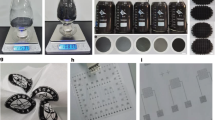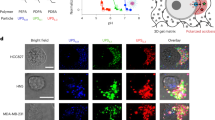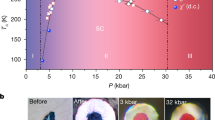Abstract
MESSRS. M. DANYSZ and M. Żyw, working in this laboratory, have bombarded diverse substances with rays from a thin-walled glass tube (resulting range about 5 cm.) containing some 15 millicuries of radon, and immediately afterwards have tested their activity with a Geiger-Müller counter. An activity decaying exponentially with a half period of 1.2 min. was found on all the substances examined, namely, platinum, silver, lead, calcium and nickel. No certain influence of the nature of the substance could be ascertained. The initial activity was of the order of 50 impulses per minute. The effect disappeared when the range of rays was reduced by two very thin gold foils or a few millimetres of air.
This is a preview of subscription content, access via your institution
Access options
Subscribe to this journal
Receive 51 print issues and online access
$199.00 per year
only $3.90 per issue
Buy this article
- Purchase on Springer Link
- Instant access to full article PDF
Prices may be subject to local taxes which are calculated during checkout
Similar content being viewed by others
References
Note added to proof. We have since found that NaN3 gives a greatly increased effect, which confirms our assumptions.
Author information
Authors and Affiliations
Rights and permissions
About this article
Cite this article
WERTENSTEIN, L. An Artificial Radioelement from Nitrogen. Nature 133, 564–565 (1934). https://doi.org/10.1038/133564b0
Issue Date:
DOI: https://doi.org/10.1038/133564b0
This article is cited by
-
Induced Radioactivity
Nature (1934)
Comments
By submitting a comment you agree to abide by our Terms and Community Guidelines. If you find something abusive or that does not comply with our terms or guidelines please flag it as inappropriate.



